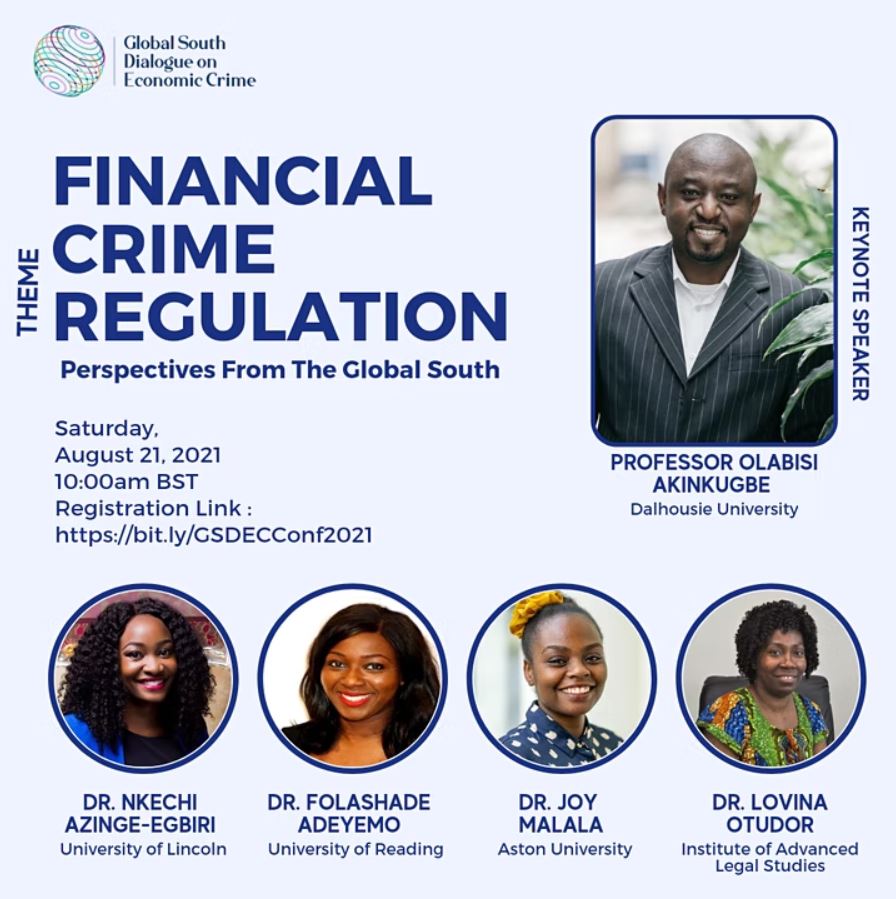Financial Crime Regulation – A Global South Perspective

EVENT DETAILS
Global South countries continue to lose an immeasurable, though, significant amount of funds yearly to illicit financial flows (IFFs), notwithstanding improvements in global regulatory structures aimed at curbing financial crime. The tragedy for these countries is that a large percentage of IFFs come from tax crimes, money laundering, bribery and corruption. These are not victimless activities as they undermine the socio-economic development of Global South countries.
Consequently, it is critical to examine whether the current global regulatory framework is best suited to effectively combat financial crime in the Global South. A critical hinderance to combatting financial crime in the Global South is the failure of contextualizing challenges to preventing and combatting these crimes. There are several reasons for this divergence between global standards/conventions and indigenous realities.
One reason is the wholesale transplantation of laws without due consideration for adaptability aimed at facilitating its suitability with recipient countries. Such laws, which lead to inadequately regulated or unregulated regulatory spaces, have parameters for effectiveness in the Global South. The resulting paradox being that these laws perpetuate underground-market crimes in these countries, a problem symptomatic of the regulatory design flaws.
Another reason is the absence of indigenous collaborative research in this area. Regulations and laws are informed by global standards/laws due to the dearth of home-grown collaborative research outputs that originate regulatory and legislative changes. The lack of coordinated interactions between law makers, policy makers, enforcement officials and stakeholders in the Global South has also led to the proliferation of similar laws in certain countries.
The highlighted reasons are practical concerns that need to be considered in an applied and relevant manner by those with academic and practical experience in regulation, enforcement and compliance. This would facilitate a deep analysis of these issues.
This conference explored financial regulations from a Global South Perspective and was hosted by Aston University. Watch the full coverage here – Financial Crime Regulation – A Global South Perspective videos.
The Global South Dialogue on Economic Crimes Network seeks to advance dialogue, research, and capacity on economic and financial crimes
